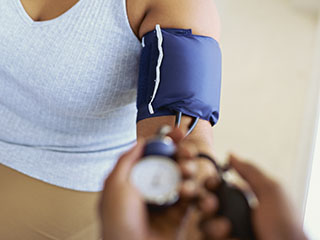Type 2 Diabetes: Your Health Is in Your Hands

Q&A with Dr. Jose Zarzuela
Q: What is diabetes?
A: Diabetes is a chronic health condition when your body can’t properly use the glucose (sugar) you get from food, causing it to build up in your blood to unhealthy levels. If not controlled, diabetes can lead to heart and blood vessel disease, stroke and kidney failure, among other things.
Q: How many people have diabetes?
A: Type 2 diabetes, the most common kind of diabetes, is a growing problem. An estimated 23 million Americans have it, and many more are at risk for developing it.
Q: How do you get type 2 diabetes?
A: Risk factors include a family history of diabetes and ethnicity: African Americans, Hispanics and American Indians have higher rates. But negative factors in our American lifestyle, including obesity, inactivity and stress, can also increase your risk. In fact, 80% of people with type 2 diabetes are overweight.
Q: If I get type 2 diabetes, will I be on medicine the rest of my life?
A: No. Medicine is often helpful, but many of my patients have made lifestyle changes to successfully manage their diabetes and minimize its effects on their health. You can, too.
-
- Improve your diet: Keep track of your carbohydrates so you don’t go overboard, and stay away from sweet drinks and other sugary foods. Get lots of dietary fiber through plant-based foods like fruits, vegetables and whole grains. Avoid foods with trans fats, and get lean protein from sources such as fish, chicken, dairy, beans or vegetables. You doctor may also refer you to a nutritionist to help you eat better.
- Get up and start moving: 30-60 minutes of moderate exercise each day, like walking, biking and swimming, can help you lose weight and keep it off.
- Reduce your stress: Stress pushes up blood glucose and raises your blood pressure. Ways to reduce stress:
- Do breathing exercises
- Tense your muscles and then release them
- Go on a walk or jog
- Stretch
- Do an activity you enjoy, like a hobby
- Replace negative thoughts with positive ones.
As you do the right things to bring your blood sugar back to normal and keep it there, your doctor can provide support and tools to help you succeed ─ like a glucose monitor to help you stay on track. In many cases, patients who make healthy lifestyle changes are eventually able to stop taking diabetes medicine.
Managing your diabetes starts with making the changes that can make you healthy again. You’ll see for yourself – your health is in your hands.
Dr. Zarzuela received his medical degree from the University of Maryland School of Medicine and is certified by the American Board of Internal Medicine. He sees patients in MPCP’s Pasadena office.






